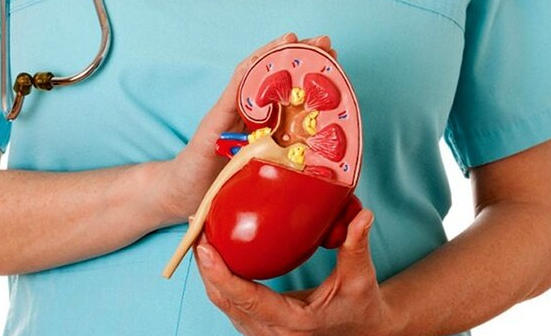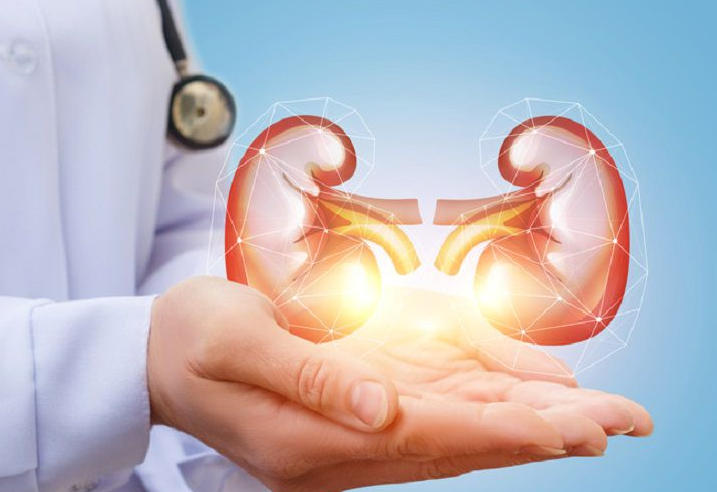Nutrition for kidney patients: Eating the right types and amounts of food each day can help improve kidney function and overall health, which can strengthen the body and improve its health. Long-term improvement. In addition, kidney disease can make a person tired, reduce appetite, and affect the taste of food. Food waste accumulates in the blood instead of being eliminated by the kidneys.

A kidney patient’s diet must be altered depending on how well his kidneys are functioning. In kidney disease, there are five stages, the first stage being the mildest, while the fifth and final stage is when kidney failure has begun or reached.
Early stage kidney disease patients should reduce sodium in their diet, and some may also be advised to reduce protein.
In patients with worsening kidney conditions, potassium and phosphorus should be reduced in their diets.
Patients with kidney disease should speak with a health care provider to determine their nutritional needs and follow their doctor’s instructions.
Kidney-friendly foods
Kidney patients may benefit from the following foods:
Omega-3-rich fish
As a result of their many functions, omega-3 fatty acids are essential nutrients for the body. The drug controls blood clotting, builds cell membranes in the brain, reduces the risk of heart rhythm problems, and lowers blood pressure and triglycerides. Omega-3 cannot be produced by the body, but must be obtained from food. Fish, such as salmon, sardines, herring, and white tuna.
Fruits and vegetables
Some kidney patients may be advised to reduce potassium consumption, so it’s important to know the amount of potassium in the foods you eat and how much your body needs.
The following fruits and vegetables may be useful for kidney patients:
Strawberry fruit has a distinct taste and many health benefits. Vitamins, dietary fiber, and antioxidants are found in it, and it can be eaten on its own or added to salads.
Sweet potatoes contain a high amount of nutrients. It contains a good amount of vitamin A, vitamin C, and beta-carotene, as well as vitamin B6, potassium, and can be consumed pureed or cooked. People on kidney dialysis or who need to limit potassium should avoid sweet potatoes because they are high in potassium. Sweet potatoes should be avoided by them.
In addition to their vitamins, minerals, and dietary fibers, leafy vegetables such as spinach, chard, etc., contain antioxidants and other compounds that help protect the body against diseases. Potassium is abundant in vegetables. It is not suitable for dialysis patients or those following a restricted diet, and these recommendations will be clarified later.
Apples make a healthy snack. Since pectin is one of the important types of dietary fiber, it helps to reduce some of the kidney-threatening factors, such as high cholesterol levels and blood sugar levels. Apples can be eaten if desired.
Berries, such as blueberries and raspberries, are packed with nutrients and antioxidants. When you’re craving sweets, berries can be a healthy alternative to sugary foods because they contain compounds that protect the body’s cells.
Vitamin C, folate, and vitamin K are all present in cauliflower, and it also contains anti-inflammatory compounds. In addition to being rich in dietary fiber, cauliflower puree can be used in place of potatoes to make low-potassium side dishes.
There are various nutrients found in garlic, including vitamin C, manganese, and vitamin B6, as well as sulfur compounds that have anti-inflammatory properties as well as nutritional value. It gives the food a distinctive taste and kidney patients are advised to limit sodium intake in their diet, including table salt, and garlic may add a certain flavor to the food if used instead of salt.
There are many health benefits associated with olive oil, and it is a healthy option for kidney patients. It contains healthy fats and does not contain phosphorus. One of the most important fatty acids in olive oil is oleic acid, which is a type of monounsaturated fat. These fats are anti-inflammatory and remain stable at high temperatures. As a result, olive oil is a healthy choice for cooking. It may be beneficial in these cases to use olive oil as a healthy and high-calorie food.
Featuring high levels of phosphorus and potassium and plant proteins, semolina is a healthy alternative to other whole grains, and it is also high in magnesium, manganese, iron, and vitamins. It is made from whole wheat grains.

Kidney patients should reduce certain foods
Several important nutrients may need to be controlled by kidney patients, and below is a list of foods to avoid or limit. After consulting a specialist doctor and reviewing the diet changes that should be made:
Foods high in protein:
Bodybuilding, growth, health promotion, and recovery require protein, and its deficiency can result in a variety of problems. Maintaining health requires determining and controlling the ratio of protein intake, since high levels of protein can cause damage.
Protein consumption depends on many factors, such as body size, health status, physical activity, and kidney disease status. It is recommended by doctors to limit protein intake or to change its sources. It is recommended to consult a doctor or specialist to determine the amount of protein consumed and the best sources to consume because its high levels can cause more damage to the kidneys. Here are some protein-rich foods:
Red Meat.
egg .
Fish.
Sodium-rich foods include:
Many foods, especially edible salt, contain sodium, which helps maintain water balance in the body and regulates blood pressure. It is recommended to consume less than two grams of sodium per day, and the following measures can help reduce sodium consumption:
Salt and seasonings with high sodium levels should be avoided. Garlic salt, soy sauce, etc.
Eat home-cooked meals instead of fast food. There is a high sodium content in most of them.
Use new spices and herbs instead of table salt.
Canning foods are high in sodium, so avoid them as much as possible.
Shop for low-sodium foods and pay attention to the ingredients.
Before using canned foods, such as fish, meat, and vegetables, wash them with water.
Potassium-rich foods include:
When potassium levels are low or high, the brain and nerve cells of the body cannot function properly, and patients with kidney failure may suffer from high potassium levels. Many fruits and vegetables contain potassium. In addition, you should consult your doctor to find out how much potassium you should consume in your diet, such as bananas, oranges, potatoes, avocados, cooked broccoli, and others.
Phosphorus-rich foods include:
In balance with calcium, phosphorus maintains bone health, but it accumulates in the blood of kidney patients. Phosphorus is naturally found in protein-rich foods, which weakens the bones. It is also found in many processed foods, including meat, nuts, chicken, etc.
Sugary and starchy foods include:
Diabetics or obese people who reduce sugar and starch consumption can improve their health, and it is recommended to consult a doctor to determine the daily carbohydrates and foods high in sugar and starch.
Kidney patients’ fluids
Lipids are foods that are liquid at room temperature. As with ice cream, ice cubes, and milk, liquids are also found in many foods, such as rice, salad, cooked pasta, soup, and watermelon, although you can eat as much as you want. However, some kidney patients may need to limit it, while others can usually take it without restriction. If you are concerned about the amount of fluids you should consume each day, you can consult your doctor or specialist.
An example of a kidney patient’s diet
The amount of calories and food needed by each person differs, so it is recommended to consult a specialist doctor for a kidney patient diet plan. Chronic kidney disease patients can usually get all the vitamins and nutrients they need through a healthy, balanced diet, but their intake may be limited if recommended by their doctors. According to the patient’s needs and lifestyle, he prepares a plan.
In addition to the results of the blood test and the patient’s health status, the restrictions applied to a patient depend on the stage of his or her disease, the cause of the infection, the drugs he or she is taking, and the medications the patient is taking. Whether he has other diseases such as diabetes. Besides the foods that are suitable for kidney patients and those that should be avoided, we also mention the following points about their nutrition:
For patients who have trouble maintaining their weight and may benefit from eating healthy fats, consult a doctor or specialist. If a person does not have diabetes, he can consume honey to increase the calorie intake and obtain the necessary energy.
Taking nutritional supplements recommended by a kidney specialist. In order to ensure that the patient is getting the right amount of vitamins and minerals, it is important to ensure that they are eating the right meals for kidney disease.
It is important to choose the right foods for vegetarian patients. Vegetarian diets include vegetables, fruits, and whole grains, which are high in potassium and phosphate, so it is vital to ensure that vegetarians receive adequate amounts of plant protein while maintaining adequate potassium and phosphate levels. It is also important to consult a specialist regarding the intake of the body.
A specialist doctor should be consulted before starting any exercise program to maintain the health and strength of the body, to improve the quality of life, and to reduce the symptoms of some health problems.
How does a patient with kidney failure eat?
A patient may suffer from kidney failure during the fifth and last stage of kidney disease, and it should be noted that no single diet plan is suitable for all patients with kidney failure.
Choosing the appropriate foods and nutritional supplements depends on many factors and may change over time, and in some cases, the doctor refers the patient to a specialist for guidance.
Dialysis patients with kidney failure are advised to change their diets. He may also need to limit fluids, salts, and certain nutrients because he needs more protein.
Everyone’s health depends on eating healthy food in general. The body needs energy for many purposes, including: performing daily tasks, reducing the risk of infection, building and maintaining muscle, and maintaining a healthy weight, especially for patients with kidney failure.
Patients with kidney failure need certain nutrients
As a result of a healthy diet, the body receives adequate amounts of the following nutrients:
A proper diet for kidney patients in the early stages differs from a diet for kidney failure patients. In stages 1 to 4 of kidney disease, protein intake should be limited.
It is important to note that some protein-rich foods may also contain high levels of phosphorus. In order to determine the recommended daily amount of protein for a patient with kidney failure, a specialist should be consulted.
The body obtains calories from food, and in case of a shortage, it turns to protein for energy. In contrast, getting enough calories helps the body maintain a healthy weight and build muscle.


